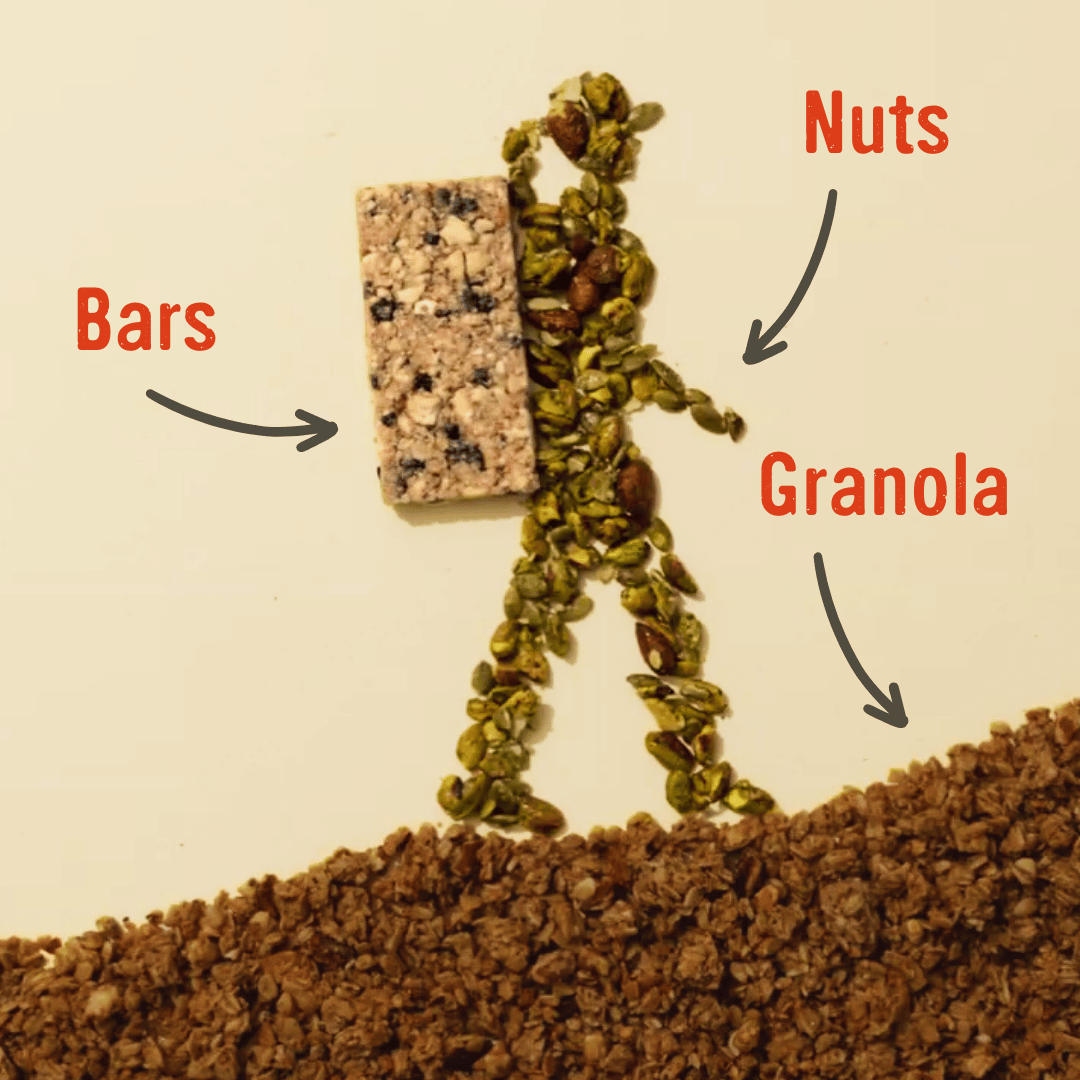Set up great sleep from the start of your day. Taos Bakes products pack real nuts, seeds, oats, and organic sweeteners for clean, steady energy that crushes afternoon crashes and late-night snack pulls. Non-GMO and gluten-free, they pair perfectly with an earlier dinner and a calm wind-down.
In the fast-paced rhythm of modern life, sleep often becomes the first casualty of busy schedules, digital distractions, and the relentless pressure to "do more." Yet, restorative sleep is one of the most powerful tools we have for optimizing health, supporting longevity, and unlocking peak performance. The habits and routines that shape your nightly rest, collectively called sleep hygiene, influence everything from cognitive sharpness and emotional balance to immunity and metabolic health.
Why Sleep Hygiene Matters
Sleep is not just downtime. It’s an active biological process that repairs tissues, consolidates memory, balances hormones, and clears waste from the brain. When sleep quality suffers, the effects ripple across every system in the body: higher stress hormones, increased inflammation, reduced insulin sensitivity, and diminished resilience.
For health-conscious individuals, dialed-in nutrition, supplements, and fitness routines will never reach their full potential without equally strong sleep hygiene.
Core Principles of Effective Sleep Hygiene
-
Consistent Sleep Schedule
The body's circadian rhythm thrives on predictability. Going to bed and waking up at the same time every day (yes, even weekends) helps regulate hormone release, supports deeper sleep cycles, and enhances morning energy. -
Optimize the Sleep Environment
Your bedroom should be a sanctuary for rest: cool (60–67°F), dark, and quiet. Blackout curtains, a high-quality mattress, and white noise machines can all reduce disruptions. Eye masks and earplugs are simple, affordable tools that block out excess light and sound for deeper, uninterrupted rest. -
Evening Rituals That Signal "Wind-Down"
Gentle habits like reading, journaling, or light stretching signal to the brain that it is time to transition. Herbal teas such as chamomile or valerian root, or calming green juices rich in magnesium, can support this ritual. The key is avoiding heavy meals close to bedtime. Eating within three hours of sleep can disrupt digestion and interfere with deeper sleep stages. -
Limit Stimulants and Alcohol
Caffeine consumed even 6–8 hours before bed can impair deep sleep stages. Alcohol, though sedating at first, fragments sleep and reduces REM quality. Balance hydration carefully so you do not wake up frequently at night. -
Nutrition and Supplementation for Sleep
Sleep-supportive nutrients can optimize your body's rhythms. Magnesium glycinate and L-theanine calm the nervous system. Adaptogens such as ashwagandha lower cortisol and support recovery. For additional targeted support, nutraceuticals such as melatonin or tryptophan can help regulate circadian rhythm and promote sleep onset.
How Technology Can Support (or Sabotage) Sleep
Technology can be both an ally and an obstacle when it comes to sleep. On one hand, sleep-tracking apps and smart wearables provide data that was once only available in a lab. They can measure sleep cycles, duration, and disruptions, offering you a clearer picture of whether you are getting enough deep and REM sleep. Some devices even provide readiness scores, guiding you on whether your body is recovered enough for intense activity or whether it needs more rest.
Beyond tracking, technology can also create helpful routines. Smart lights that gradually dim in the evening and brighten in the morning can mimic natural sunlight patterns, gently signaling your circadian rhythm when it is time to wind down or wake up. Meditation and relaxation apps with guided breathing or nature sounds can help calm an overactive mind before bed, reducing stress and easing the transition into sleep.
The downside is overstimulation. Blue light from phones, laptops, and televisions suppresses melatonin production, making it harder to fall asleep. The constant stimulation of scrolling through social feeds, reading emails, or playing games keeps the brain alert when it should be relaxing. Even background notifications or buzzing from your phone can fragment sleep throughout the night.
To maximize the benefits and minimize the risks, set boundaries around technology. Use night mode to reduce blue light exposure, set a digital "curfew" an hour before bed, and leave your phone outside the bedroom if possible. Instead of late-night scrolling, try a non-digital wind-down ritual such as journaling, stretching, or reading a physical book. Used wisely, technology can enhance sleep hygiene, but if left unchecked, it can easily sabotage it.
The Science of Sleep Stages and Brainwaves
Sleep is not a single state but a progression through different stages, each with unique functions and brainwave patterns. The first stage, light sleep, is where the body begins to relax, muscles loosen, and brain activity slows to theta waves. The second stage makes up the largest portion of the night, stabilizing the transition into deeper stages while memory consolidation begins.
Deep sleep, also called slow-wave sleep, is marked by delta brainwaves. This stage is critical for physical restoration. Growth hormone is released, tissues repair, and the immune system strengthens. Without sufficient deep sleep, recovery from workouts, stress, or illness is significantly impaired, even if you clock eight hours in bed.
Rapid Eye Movement (REM) sleep, on the other hand, is where most dreaming occurs. Brain activity increases to levels similar to wakefulness, but the body remains paralyzed to prevent acting out dreams. REM sleep is essential for cognitive processing, emotional regulation, and creativity. It is during REM that the brain integrates new information, problem-solves, and enhances learning.
The quality of your sleep depends on how well you cycle through these stages. Stress, poor habits, alcohol, or late-night caffeine can shorten or disrupt deep sleep and REM, leaving you unrefreshed even after a full night in bed. Prioritizing sleep hygiene ensures your body spends more time in delta and REM states, where the most powerful rejuvenation happens.
Timing Your Sleep
When you sleep can be just as important as how long you sleep. The human body runs on a circadian rhythm, an internal clock regulated by light exposure, hormones, and daily routines. Going to bed at inconsistent times confuses this rhythm, making it harder to fall asleep, wake up refreshed, and sustain energy during the day.
Research shows that earlier sleep is generally more restorative. Sleep before midnight contains a higher percentage of deep slow-wave sleep, while later sleep shifts more toward lighter stages. Aligning bedtime with natural cues, such as winding down after sunset and waking closer to sunrise, can boost hormone balance and metabolic health.
For night owls or shift workers, this can be challenging, but there are strategies to improve alignment. Exposing yourself to bright natural light in the morning resets your internal clock, while dimming lights in the evening signals to your brain that it is time to wind down. Eating meals on a consistent schedule, especially finishing dinner three hours before bed, also strengthens circadian cues.
The goal is not perfection but consistency. A stable sleep window, such as 10 p.m. to 6 a.m., creates a rhythm that your body can rely on, making it easier to fall asleep quickly, enter deep stages, and wake up alert without relying on stimulants.
Mindset Around Sleep
One of the most overlooked parts of sleep hygiene is the mental attitude you bring to bedtime. Many people stress over not falling asleep fast enough, which only creates more anxiety and delays sleep even further. Instead, adopting a relaxed mindset can transform the experience. Simply lying in bed with your eyes closed allows the body to recharge. Even if you do not drift off immediately, your nervous system benefits from the rest.
It also helps to shift how you think about occasional poor sleep. Everyone has nights where stress, discomfort, or restlessness interferes. Instead of worrying about the next day, remind yourself that the body is resilient. A little extra fatigue will often naturally lead to deeper, more restorative sleep the following night. This mindset prevents the cycle of anxiety-driven insomnia that many people experience.
Building positive associations with sleep is equally important. Create a pre-bed ritual that you genuinely enjoy, whether it is drinking a calming tea, reading a favorite book, or doing light stretches. By associating these habits with comfort and rest, you create a mental signal that bedtime is safe, peaceful, and something to look forward to.
Sleep is not a test you can fail. The more you view it as a natural process rather than a performance to perfect, the easier it becomes to slip into restful cycles.
When to Seek Professional Help
Most sleep challenges can be improved with strong hygiene habits, but some issues require professional evaluation. If you consistently struggle to fall asleep, wake up multiple times each night, or feel unrefreshed despite spending seven to nine hours in bed, it may be time to consult a specialist.
Common sleep disorders include insomnia, sleep apnea, restless legs syndrome, and circadian rhythm disorders. Sleep apnea, for example, causes repeated breathing interruptions that prevent deep sleep, often leading to daytime exhaustion and long-term cardiovascular risks. Many people live with sleep apnea without realizing it, mistaking it for general fatigue or poor sleep quality.
A sleep study can provide valuable insights into what is happening during the night. These evaluations measure breathing, oxygen levels, brainwaves, and movement to identify specific issues. Based on results, doctors may recommend targeted therapies such as CPAP machines, medication, or behavioral therapy. Cognitive Behavioral Therapy for Insomnia (CBT-I) is especially effective, focusing on rewiring unhelpful thought patterns and building new routines around rest.
It is also worth seeking professional help if poor sleep affects your mood, productivity, or overall quality of life. Chronic sleep deprivation is not just a nuisance; it raises the risk of depression, anxiety, diabetes, heart disease, and accelerated aging. Addressing the root cause with expert guidance can restore sleep quality and prevent long-term health consequences.
The Bigger Picture: Sleep as a Wellness Multiplier
Prioritizing sleep hygiene is not just about avoiding fatigue. It is about unlocking the full synergy of your health investments. Every workout, every supplement, every carefully planned meal yields greater benefits when paired with consistent, restorative sleep. When we consistently practice strong sleep hygiene habits, we do not just feel better in the morning. We age more gracefully, build more resilience against stress, and show up as sharper, more energetic versions of ourselves in every aspect of life.
Key Takeaways for Better Sleep Hygiene
-
Keep a consistent sleep schedule, even on weekends.
-
Create a cool, dark, quiet sleep environment (with eye masks or earplugs if needed).
-
Avoid heavy meals close to bedtime. Choose calming teas or juices instead.
-
Supplement wisely with magnesium, L-theanine, adaptogens, melatonin, or tryptophan.
-
Limit caffeine, alcohol, and evening screen exposure.
-
Remember that deep delta-wave sleep is where real rejuvenation happens.
-
Do not stress about sleepless nights. Rest itself is restorative.
-
Seek professional help if insomnia persists.
Make sleep hygiene effortless with grab-and-go Taos Bakes. Keep bars, granola, and CosmoNuts on hand to fuel daylight hours and keep the kitchen closed on time. Stock up at taosbakes.com and wake up ready to win tomorrow.






























